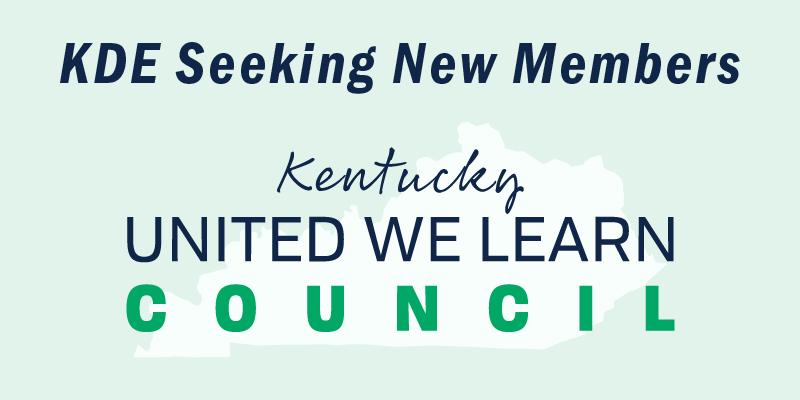Gov. Steve Beshear announced Wednesday that 50 percent of students who started kindergarten this school year were ready to learn and succeed. That is up from 49 percent last year. Despite the gain, about 24,500 students entered kindergarten unprepared.
“While we are moving in the right direction, this data reinforces the importance of quality early learning opportunities for all children,” Beshear said. “Our youngest learners must start out with a sound foundation on which to build. When they don’t, they often struggle to catch up with their peers only to graduate unprepared for college, career or to be a productive member of society.”
This is the second year that the Kindergarten Readiness Screener has been given statewide to all incoming kindergarten students. Teachers administered the BRIGANCE K Screener to 49,089 kindergarten students in all 173 school districts at the beginning of the 2014-15 school year. Students are asked their name and age, to recite the alphabet and to count to 30, among other tasks.
“Performing at a certain level on the screener is not a requirement for entering kindergarten,” said Education Commissioner Terry Holliday. “Rather, it gives our teachers a tool, so they can meet children where they are instructionally and provides a way to determine when interventions may need to begin early to ensure students get on track and stay on track for success.”
Kindergarten Readiness by Student Group
| Group | Number Tested | Kindergarten Ready Percentage | ||
| 2013-14 | 2014-15 | 2013-14 | 2014-15 | |
| All Students | 50,532 | 49,089 | 49.0 | 50.0 |
| Male | 25,707 | 25,130 | 43.6 | 44.6 |
| Female | 24,825 | 23,959 | 54.5 | 55.6 |
| White (non-Hispanic) | 38,735 | 37,389 | 51.2 | 52.1 |
| African American | 5,196 | 5,158 | 44.2 | 46.3 |
| Hispanic | 3,595 | 3,486 | 28.0 | 28.7 |
| Asian | 731 | 737 | 61.6 | 64.2 |
| American Indian/Alaska Native | 63 | 55 | 49.2 | 45.5 |
| Native Hawaiian/Pacific Islander | 70 | 51 | 51.4 | 49.0 |
| Two or more races | 2,141 | 2,210 | 50.5 | 51.0 |
| Limited English Proficiency | 2,890 | 2,886 | 26.1 | 28.7 |
| Free/Reduced-Price Meals | 31,145 | 31,600 | 37.6 | 39.4 |
| Students with Disabilities | 6,405 | 7,034 | 28.2 | 27.6 |
1Students can belong to more than one student group
The common kindergarten screener, as outlined in 704 KAR 5:070, provides teachers with key information early in the school year that they can use to guide instruction and close learning gaps before they have a chance to widen. The screener is aligned with both Kentucky’s school readiness definition and Kentucky’s Early Childhood Standards.
As part of the kindergarten screener, parents were asked to fill out a survey about what type of setting the child was in the year before starting kindergarten, along with several other things. The questionnaire did not distinguish between half-day and full-day programs, or the duration a child spent in a particular setting.
Kindergarten Readiness by Prior Setting
| Prior Setting1 | Number Tested | Kindergarten Readiness Percentage | ||
| 2013-14 | 2014-15 | 2013-14 | 2014-15 | |
| State-Funded Preschool | 14,987 | 17,396 | 44.9 | 47.4 |
| Head Start | 5,822 | 6,615 | 42.4 | 44.5 |
| Child Care | 9,562 | 10,652 | 70.0 | 69.9 |
| Home | 10,468 | 13,629 | 37.4 | 37.9 |
| Other | 5,152 | 5,596 | 60.3 | 61.3 |
| Unknown | 9,857 | 2,171 | 45.2 | 41.0 |
1Students can be included in multiple prior settings
“Community Early Childhood Councils are working with local communities to help parents and programs understand what it means to be ready for kindergarten,” said Terry Tolan, executive director of the Kentucky Governor’s Office of Early Childhood (KYGOEC). “In just the last year, a number of United Way Born Learning® Academies have started up across the state, the legislature has expanded state-run preschool to more children in need and we’ve continued working to strengthen the STARS rating system for public and private early care and education programs.”
Legislation is pending that would institute a new quality-based graduated early care and education program rating system for all licensed child care, certified family child-care homes, state-funded preschool and Head Start based on, but not limited to:
- Classroom and instructional quality
- Administrative and leadership practices
- Staff qualifications and professional development; and
- Family and community engagement
“As is often the case in education, improvement doesn’t happen overnight. It involves a systemic, cultural shift and change is not always immediate,” Holliday said. “I’m just grateful Governor Beshear, our state legislators and terrific community partners recognize the importance of early education and the impact that it can have on a child’s ability to succeed in school and graduate college/career-ready, and that they are working along with our schools to improve the opportunities for all of Kentucky’s children.”
The kindergarten readiness screener is just one tool among many that can be used to strengthen communication and collaboration between all members of the community. Resources to support quality learning experiences are available for parents and for early care and education providers on the Kentucky Department of Education and the KYGOEC websites.
The kindergarten readiness screener data is available in the supplemental data section of KDE’s Open House and will be added to the school report card in the fall.
To learn more about the common kindergarten screener or to view an early childhood data profile on your area, visit the KYGOEC’s website.




Leave A Comment